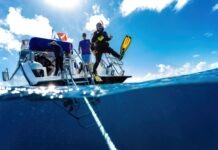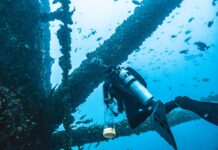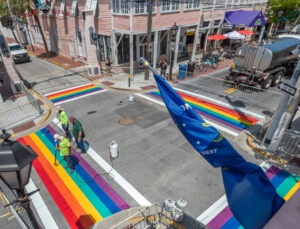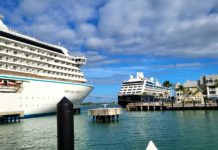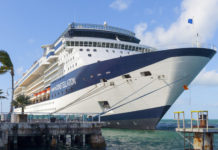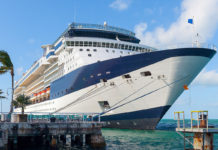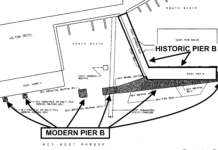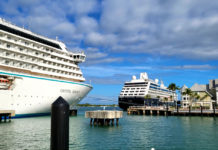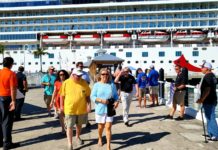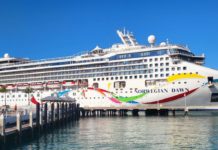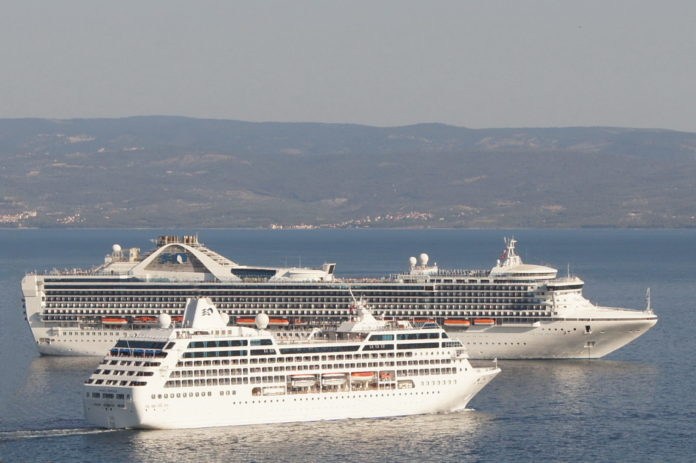
Dear Editor:
The Committee for Safer, Cleaner Ships was formed earlier this year by my brother, Evan Haskell, our lifelong friends Jolly Benson and Will Benson, and myself. The four of us grew up together here in the Keys, played baseball together, dove lobster in the canals together. Today we’re working hard to keep up with the ever-rising cost of living required to raise our families. And we’re working even harder to protect our way of life from corporate interests that exploit Key West for their own gain.
For several months now we’ve been focused on educating the public about a set of proposed amendments to the City Charter. This referenda is not a choice between ships or no ships. It’s a choice between big ships, with all the big problems they bring, and smaller ships, which fit the scale of our historic downtown and the depth of our harbor.
Approval of all three amendments by voters on Nov. 3 would establish a simple set of limitations. Smaller cruise ships, with a carrying capacity of 250 to 1,300 persons, would be welcomed. Up to 1,500 people per day would be allowed to visit our city by cruise ship, allowing for full passenger loads from two or more small ships. And ships with superior environmental records would be prioritized.
It’s the sort of common-sense legislation that should have been implemented years ago. Most people in Key West agree that our relationship with cruise ships has gotten out of hand. An island of only 25,000 residents simply cannot handle 12,000 people a day from cruise ships. Enough is enough.
The amendments were crafted after careful research, consultation with experts and lively debate. Our first priority was the health and welfare of our community, particularly in light of the connection between COVID-19 and cruise ships. Infectious diseases thrive in large groups of people, so larger ships will always pose a greater risk than smaller ones. Studies show large cruise ships, those that carry more than 1,300 passengers, have an exponentially higher risk of spreading COVID-19 than smaller ships.
This is a clear and objective reason for blocking large ships that can carry more than 1,300 people.
There’s a simple formula that port cities can use to measure the risk of an outbreak from cruise ships. You divide the total number of combined cruise ship visitors and residents by the number of hospital beds to generate an objective numerical score. Key West has fewer hospital beds per capita than any port city in Florida, and more cruise visitors per capita than any port in the continental U.S. So it’s no surprise that Key West’s ability to meet the risk from cruise ships ranks lower than any other port. By comparison, Port Canaveral has 75% greater capacity than we do. Miami has 500% more capacity. Tampa has 900% more capacity.
Limiting cruise ship passengers to 1,500 per day is the minimum regulation required to bring our surge capacity in line with other port cities.
The amendments are rooted in public health, but they will have profound implications for the health of our marine environment as well. Key West is the only cruiseport in the world with such a narrow channel and shallow harbor in such close proximity to a barrier reef, which depends on clear, clean water for its survival. Perhaps the single greatest threat to our nearshore water quality is chronic turbidity, created when overlarge cruise ships stir up the muddy bottom into miles-long plumes of silt.
The connection between cruise-ship turbidity and local ecosystem health has been debated for a long time. But after seven months without cruise ships, the argument is settled. We are seeing a more sustained period of clear water, regardless of weather conditions, than anyone has seen in the Keys for at least 30 years. The queen conch spawning grounds that run across the shipping channel are again full of life. Our marine ecosystem is beginning to recover from decades of abuse.
Allowing large cruise ships to return would roll back this progress and destroy a once-in-lifetime opportunity to witness the rebirth of one of most vibrant ecosystems in the world.
Don’t be deceived by those who try to portray the amendments as a ban. Key West is on the verge of becoming the premier small-ship destination in the Caribbean. And don’t give in to those who are trying to scare you into voting against your better judgment. Mayor Johnston told the Miami Herald this week that “not one dollar” from cruise ships goes into the City’s general fund. Port Director Doug Bradshaw says cruise ships are a “break even” proposition for the City.
Small ships are a big opportunity for all of us. Voting yes is your chance to help build a better Key West.
Arlo Haskell
Treasurer of the Committee for Safer, Cleaner Ships
